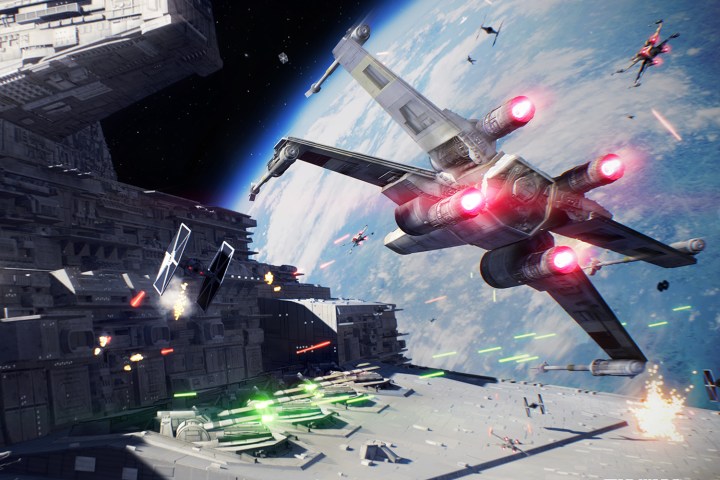
Speaking at a Credit Suisse event (via GameSpot), Take-Two president Karl Slatoff said that the company “[doesn’t] view [loot boxes] as gambling,” echoing statements made by the Entertainment Software Board.
Earlier this month, the ESA released a statement to Glixel, saying that “loot boxes are a voluntary feature in certain video games that provide players with another way to obtain virtual items that can be used to enhance their in-game experience,” and insisted that they weren’t gambling, in large part because they are optional.
That might be the case in single-player games like Middle-earth: Shadow of War or when they’re for purely cosmetic items as they are in Overwatch, but this argument doesn’t seem to apply to Star Wars: Battlefront II. The game was initially scheduled to launch with a special currency that could be acquired using real money, which could then be spent on loot boxes that would exponentially increase the rate at which players could improve their character’s abilities. This put players who didn’t want to spend cash at a disadvantage, as they would have to play for hours on end in order to have the chance to earn similar stats.
At a Credit Suisse conference, Electronic Arts CFO Blake Jorgensen said that cosmetic items were not included in loot boxes in Battlefront II in order to avoid “violating the canon” of the franchise. He said the company needed to create a balance between those “with more time than money” and those “with more money than time.”
What Jorgensen is describing sounds a lot like the dreaded “pay-to-win” EA needs to avoid, but it might not be the consumers that ultimately decide the fate of loot boxes in games. After the Belgian Gaming Commission opened an investigation into the practice, Hawaii state congressman Chris Lee announced he was investigating “predatory behavior” from game publishers, as well.
Editors' Recommendations
- The next game from the Outriders studio loses Take-Two as its publisher
- U.K. government won’t ban loot boxes, but urges the games industry to police itself
- Take-Two’s CEO has his doubts about a Netflix pricing model for video games
- ESRB to introduce new ratings label for games with loot boxes
- The U.K. says loot boxes are a form of gambling and shouldn’t be sold to kids


